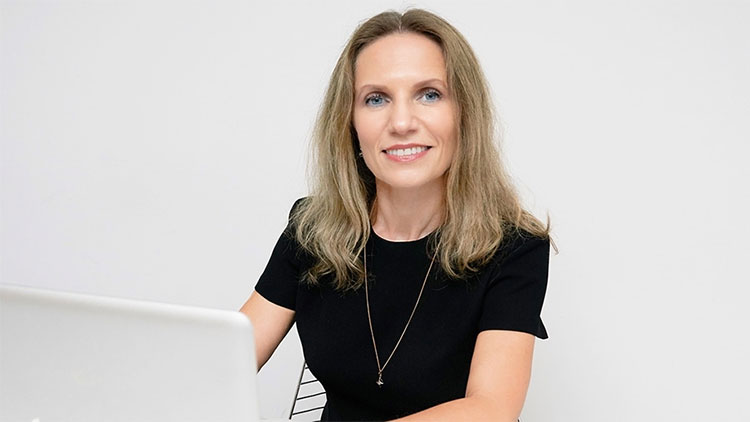How CEOs can build an Agile Hybrid Organization

COVID-19 disrupted the traditional in-office workday. As a result, the hybrid workforce model became a norm for majorities businesses. Gartner estimates that “professional workers about 60% to work at home full time, about 15% to work full-time in an office, and 25% to work 1-3 days a week at an office and the remainder of the week at home. Although it varies by industry.”
The leadership of the hybrid workforce that combines office and remote work comes with challenges. CEOs are forced to operate in complex and difficult settings with multiple nationalities, different time zones and native languages among top management.
Below are the top four imperatives that would help CEOs to build an agile hybrid organization.
- Enhance people skills for hybrid management
Managing a hybrid company requires additional skills and talents compared to traditional business management. While in-person connection is becoming less frequent, people skills become more important than ever.The CEOs must rely on the top and middle management to provide employees with strong central guidance on how to design meetings and events for both remote and in-person attendees. However, the managers are often struggling in the new hybrid environment.
To succeed moving forward with a hybrid workforce, successful CEOs are offering leadership coaching to team managers and investing in building a culture that reaches out of the traditional office and into people’s homes.
By developing people skills, proactive communication, emotional intelligence CEOs are strengthening their hybrid business management and they are positioning their company for success.
- Offer equal experiences in terms of technology and accessibility
Proven by experience when it comes to a hybrid team, the more people it has, the harder it is to manage.a)Hybrid teams increasingly depend on technology. CEOs should employ the best suitable technology including technical support to make sure that the whole team members are being trained and adequately are using the company’s technology. Having easy access to tech people will help each team member to keep up to date on technology without interrupting team meetings.
b)McKinsey has found that more than 61 million meetings take place globally every month where around 25% participants join remotely. Only about 50% of all participants are likely to speak. Hybrid leaders must supply all meeting rooms with their company’s video conferencing software. It provides those working remotely accessibility to a meeting and ability to engage with everyone in the room, so that they feel equal to their peers on site.
Savvy CEOs are supplying their hybrid team managers with the tools and structures to ensure equality between remote and in-person performance management. Without equality, the hybrid model will start to erode as employees recognize the link between being in the office and their own professional success.
- Develop seamless connection between office and home
Hybrid work is critical to develop seamless connectivity between those that are remote with those in the office. If remote employees are not effortlessly connected with those in the office, there will inevitably be disparities, silos, and knowledge loss. The CEO of Mastercard, Michael Miebach said, “As we think about the future, there is an opportunity to strengthen the relationships we form with colleagues and teams, no matter where you are.”a)Regulate a variety of meetings to achieve balance. The team managers tend to compensate for the lack of physical interactions with more and more meetings. In the long run, this can get exhausting and drain the team’s energy.
Many successful leaders are adjusting their own calendars and those of their teams, balancing group and one-on-one discussions with time for more focused work or rest. Jane Fraser, the CEO of Citi shared that her company “designates Fridays as a day when we turn off our cameras on Zoom”.
b)Make important information accessible to employees. Some CEOs are making bold changes and letting go of their HQ as being the place where the most important tasks take place. They are keeping all important material up to date and accessible to employees wherever they may be.
- Create and maintain a remote-compatible culture
Dilution of culture is one of the hybrid workplaces challenges. There is a risk that the culture becomes diluted, and employees become disconnected with the organization. In a hybrid world work is no longer so much a place, but an activity, and how to make the transition more seamless.Winning CEOs are taking this challenge as a new opportunity to review and evaluate which aspects of their culture they want to nurture and protect, and which they can potentially let go.
Tiffany Polk, Managing Director at JPMorgan Chase, believes that the key to a successful hybrid is flexibility for employees: “Hybrid really is a great solution moving forward. The reality is that people’s lives are much more complicated than they’ve ever been before and hybrid working allows our employees to be flexible.” Empowering flexibility and giving choice for both employers and employees inspires culture to fit a hybrid workplace.
Conclusion
A hybrid work model brings us closer to the vision of being able to work from anywhere, in the fullest sense of productivity, where contributing not only personally, but also collaborating, creating and delivering as a one strong organization.
Written by Olga Artemenko.
Bring the best of the CEOWORLD magazine's global journalism to audiences in the United States and around the world. - Add CEOWORLD magazine to your Google News feed.
Follow CEOWORLD magazine headlines on: Google News, LinkedIn, Twitter, and Facebook.
Copyright 2025 The CEOWORLD magazine. All rights reserved. This material (and any extract from it) must not be copied, redistributed or placed on any website, without CEOWORLD magazine' prior written consent. For media queries, please contact: info@ceoworld.biz








